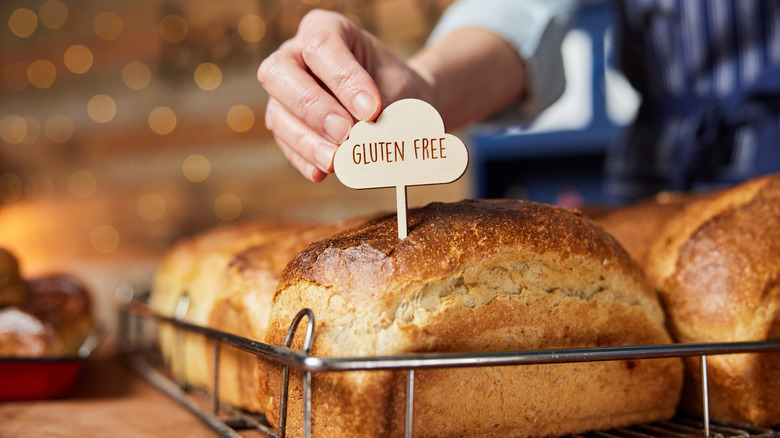Is There A Cure For Celiac Disease?
Celiac disease is an autoimmune disorder that affects about 1 in 100 people worldwide, putting them at risk for other illnesses, according to the Celiac Disease Foundation. The chances of developing cardiovascular problems, anemia, diabetes, and stomach cancer are significantly higher in celiacs compared to healthy individuals. Moreover, untreated celiac disease can lead to other autoimmune disorders and severe nutrient deficiencies.
This condition isn't always easy to detect. In some cases, its symptoms resemble those associated with other disorders and may not be obvious. For example, you may experience bloating, gas, diarrhea, or constipation after eating gluten. However, these issues could just as well indicate food intolerances or indigestion. One person may have anemia, joint pain, or blistering skin rashes, while others may show no symptoms at all, according to the Mayo Clinic.
Most symptoms can be managed through dietary changes. Some people go into remission within days after cutting out gluten, but it can take up to 3 years for the intestines to heal (per the Mayo Clinic). Even after receiving a celiac disease diagnosis, you can still have a normal life and enjoy good health.
Celiac disease treatment options
Currently, there is no cure for celiac disease. However, researchers are testing several drugs that may help treat this condition. KAN-101, for instance, aims to restore normal immune tolerance to gluten, according to the Celiac Disease Foundation. CALY-002, on the other hand, may suppress Interleukin-15, a cytokine that modules the immune system, and relieve the digestive symptoms associated with celiac disease. IMGX003, another potential therapy currently being tested, consists of 2 enzymes that break down gluten in the digestive tract.
These drugs are still in the early research stages, so it's hard to tell when they'll become available. For now, your only option is to avoid wheat, barley, bulgur, durum, rye, couscous, and other gluten-containing foods. The problem is that even "safe" foods, such as meat, eggs, and vegetables, may contain additives that have gluten in their composition. The same goes for some medications or supplements, notes the Cleveland Clinic.
Eating out with celiac disease can be tricky, too. "Storage, preparation, and serving methods must be completely separate to ensure that crumbs or drops of gluten do not come in contact with gluten-free food," registered dietitian Margaret Weiss Masiello told Everyday Health. "Thus, serving implements, cutting boards, frying pans, and deep-fat fryers must be washed thoroughly or replaced before using for gluten-free preparation." To stay on the safe side, check out the menu online ahead of time or talk to the chef when eating out.


